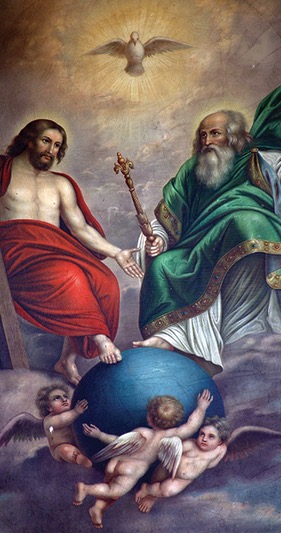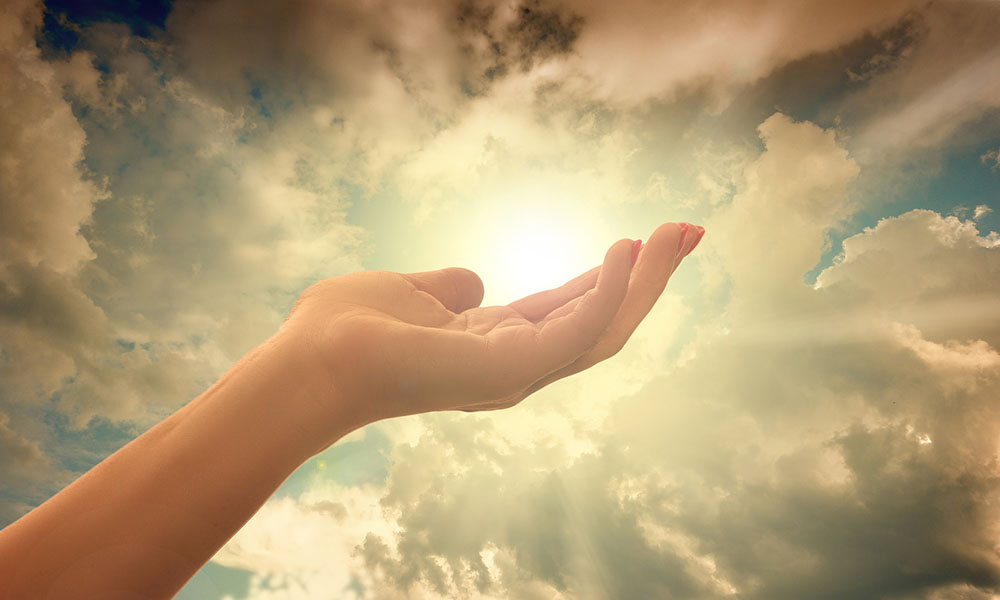We are all born into captivity. And we don’t even know it. We are not nearly as “free” as we like to think we are. Each of us is born enslaved to ourselves and thus have become complicit in the rebellion of the fallen angels against their Creator and ours. It’s a subtle and insidious enslavement; none of us rolls out of bed in the morning consciously thinking, “I am the center of the universe,” and yet almost all of our desires, choices and actions are governed by this diabolical assertion. And the assertion, like all things diabolical, is a lie.
Far from being always so obvious to us, original sin is very much like a virus that affects our entire operating system, lurking behind the screen of our life and manifesting itself in our serial sins as well as greater offenses — it distorts the way we see ourselves, the world and God. As postmodern persons, we are remarkably self-conscious and yet bereft of genuine self-awareness. We don’t really see ourselves because we are, ourselves, “in the way.” The “ego,” what Thomas Merton called the “false self” — the “me” that is at the center of this lie — occludes our vision so that we don’t see even ourselves as we should. Our vision of others also is skewed, and so we end up looking at others either as objects in the way of the exercise of our will (competitors) or as instruments we can use to achieve our own ends. In some ways, the art of Christian living is learning to stay out of the way.
Far too often we imagine that God’s grace works something like this: our unruly desires and passions lead us into any number of sins, in thought, word, action and omission. God’s grace enters in and acts as a governor, limiting our choices — clamping down, as it were, on that freedom and thus keeping us on the “straight and narrow.” However, rather than imagining grace as a kind of power that limits us by external constraint, perhaps we might re-conceive divine grace more helpfully.
In baptism, we were plunged into the dying and rising of the Lord Jesus Christ and configured to Him. We share, by His gift, in His risen life, the life of the world to come, the new life made possible by His own paschal victory and now extended to us by the sacraments. Perhaps rather than seeing grace as an external constraint, we might rather view it as it really is: the fruit of the new life given to us in Christ. To be “in Christ” (one of St. Paul’s favorite expressions) is to share in His new life — His victory and triumph over sin. Grace, far from acting as a kind of inhibitor, actually liberates us and makes us free, genuinely free. When Gabriel greeted Our Lady with the strange Greek epithet kecharitomene, usually rendered “full of grace,” he was observing her unique status among all the daughters of Eve (as well as among all the sons of Adam): Mary is most graced. And yet we must not read that to mean that she was somehow less free. Mary is actually the freest human person who ever lived, and that is precisely because she is most graced. Grace does not inhibit or create curbs for freedom, it liberates it.
Filial Love
The saints are those who have entered into this genuine freedom in Christ. They are not constrained or cramped by grace. Quite the contrary, they are men and women who have moved from servile to filial love — their relationship with the Lord is not one dominated by rules and regulations, but rather is informed by the New Law, the law of love. It is this love that is the motivating factor of moral action in their lives. It would never dawn on them to think, “What’s the minimum I need to do not to be damned?” Rather, they are moved and drawn by love, a love for Christ that first comes from Him — a divine love, the agape of the Gospels — and this is what forms their life. The “operating system” in the life of the saints is no longer sin, but it is this love and the grace and freedom it brings.

Holy Trinity. Shutterstock
In his encyclical Veritatis Splendor, St. John Paul II recognizes that the relation of truth and freedom has been constant in the Church’s teaching: “Only the freedom which submits to the Truth leads the human person to his true good. The good of the person is to be in the Truth and to do the Truth” (No. 86). This flows from Jesus’ own words: “You will know the truth, and the truth will set you free” (Jn 8:32).
In a culture that exalts in independence and autonomy, and in which the uninhibited exercise of freedom is the golden ring for which all unreflectively strive, the Gospel invites us to discover freedom precisely in relationship: We are most free when we live in relation with God in Christ. The Christian faith holds that the Holy Trinity — God: Father, Son and Holy Spirit — is the fullness of what it means “to be,” and thus “to be” in the fullest sense is “to be” precisely “in relation.” For us who by grace are offered a created share in that Uncreated Life (what Tradition would call deification or divinization), true freedom is discovered only as life in Christ, the supreme grace, by whose Spirit we have been liberated from the grip of sin and death, and through whom we have a unique and privileged access to the Father — to live as truly free sons and daughters in the Eternal Son made man.
Msgr. Michael Heintz, Ph.D., a priest of the Diocese of Fort Wayne-South Bend, Indiana, is academic dean at Mount St. Mary’s Seminary in Emmitsburg, Maryland.

